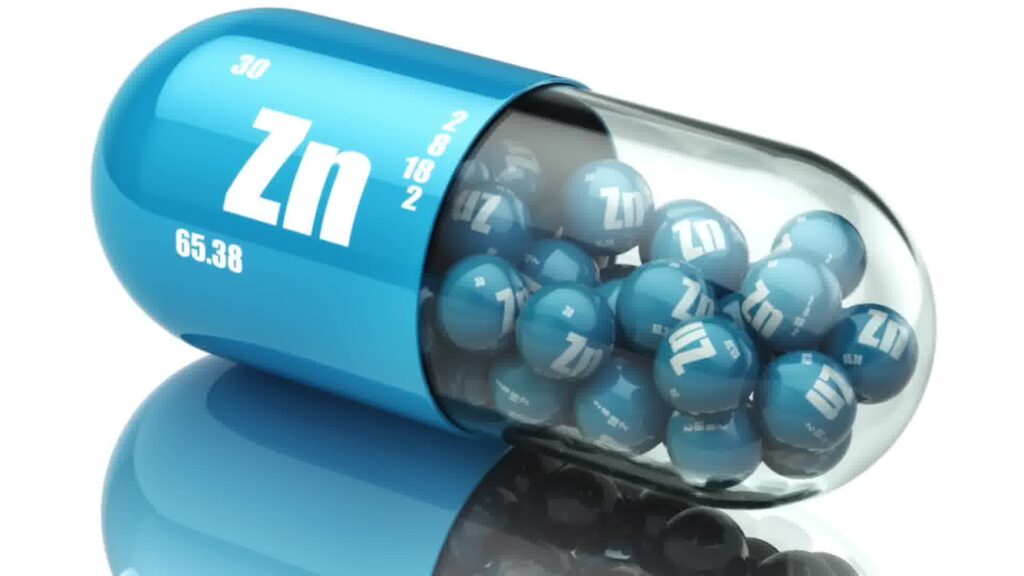Today, let’s discuss the seven warning signs of a zinc deficiency that can make your life a living hell. We’ll cover all of them, but I’ll emphasize that number seven is the most critical and the most common.
The Importance of Zinc

Zinc ranks as the third most important nutrient, after vitamin D and magnesium. Vitamin D influences over 2,500 genes, playing crucial roles in immune function, inflammation regulation, and calcium metabolism. Magnesium is involved in around 300 different enzymatic reactions, including energy production, muscle function, and nerve transmission. Zinc is vital too, as it plays a role in over 200 different enzymes, impacting various biochemical processes in the body.
Zinc enables the production of glutathione, our body’s most potent antioxidant, which is essential for protecting cells from oxidative stress and supporting the immune system. It is highly concentrated in the prostate, supports sperm and testosterone production, aids insulin secretion in the pancreas, and even facilitates memory processing in the hippocampus, a critical brain region. A deficiency can significantly impact wound healing, decrease gastritis, enhance collagen production, and promote hair growth.
The Symptoms of Zinc Deficiency
1. Night Blindness: A lack of zinc can lead to night blindness. This condition occurs when the eyes cannot adapt to low-light conditions, making it extremely dangerous when driving in the dark. A study published in the American Journal of Clinical Nutrition found that zinc supplementation improved night vision in individuals with deficiencies.
2. Low Testosterone: Zinc deficiency can result in low testosterone levels or even hypogonadism, leading to diminished sexual health and vitality. Research has shown that zinc plays a crucial role in testosterone production. In one study published in Nutrition, men who supplemented with zinc showed increased testosterone levels compared to those who did not.
3. Diarrhea: Chronic diarrhea can be a sign of zinc deficiency. In many poorer regions, children consuming high amounts of cereals and grains may suffer from this due to the phytic acid in grains that inhibits zinc absorption. The World Health Organization (WHO) emphasizes that zinc supplementation can significantly reduce the duration and severity of diarrhea in children.
4. Acne: Zinc plays a significant role in skin health. A deficiency can lead to severe acne, which can affect self-esteem and confidence. A study in the Journal of Dermatological Treatment found that oral zinc therapy significantly improved acne severity in patients, highlighting its anti-inflammatory properties.
5. Alopecia: This condition leads to hair loss. A deficiency can hinder hair growth and thickness, creating additional issues when combined with acne. The Journal of Cosmetic Dermatology published a study indicating that zinc supplementation led to significant hair regrowth in individuals with alopecia areata, a condition characterized by sudden hair loss.
6. Cataracts: Insufficient zinc can cause cataracts, which make the lens of the eye opaque and lead to vision problems. A study in the Archives of Ophthalmology found that low dietary zinc intake is associated with an increased risk of cataracts, emphasizing the importance of this mineral for eye health.
7. Thymus Gland Shrinkage: The thymus gland, crucial for a strong immune response, begins to shrink after puberty. This decline continues into older age, resulting in a weakened immune system. Zinc is essential for maintaining thymus health and ensuring optimal T-cell production, vital for fighting infections and preventing cancer. Research published in Nature Reviews Immunology highlights the role of zinc in regulating T-cell function, linking deficiencies to impaired immune responses.
The Impact of Zinc on Health
A deficient thymus leads to an increased risk of infections and diseases. Professor Greg Fay’s research highlights the importance of zinc for anti-aging and immune function. His work has shown that restoring thymus function can significantly enhance immune response and overall health. In animal studies, zinc supplementation resulted in remarkable recovery of thymus function, leading to improved immune system performance.
The importance of zinc extends beyond basic health; it also plays a role in cognitive function. Research published in the American Journal of Clinical Nutrition suggests that zinc supplementation can improve cognitive performance, especially in older adults. Additionally, zinc has been shown to support mental health by modulating the effects of stress and anxiety, as seen in studies published in Nutrients.
Causes of Zinc Deficiency
Several factors can contribute to a zinc deficiency:
. Aging: Older adults are at a higher risk due to decreased absorption and dietary intake.
. Gut Issues: Conditions like Crohn’s disease and celiac disease can hinder zinc absorption.
Low Intake of Animal Products: Zinc is more bioavailable in animal sources, such as meat, seafood, and dairy. Vegetarians and vegans may need to monitor their intake closely.
. Alcohol and Sugar Consumption: Excessive alcohol can interfere with zinc absorption, while high sugar intake can lead to increased zinc excretion.
. Chronic Stress: Prolonged stress can increase the body’s demand for zinc, leading to depletion.
. Certain Medications: Medications like diuretics and some antibiotics can affect zinc levels.
Zinc must also be balanced with copper; for every 10 parts zinc, one part copper is recommended. This balance is crucial because excessive zinc can lead to copper deficiency, which can have its own set of health issues.
Conclusion
To maintain optimal health, it’s essential to ensure you get enough zinc in your diet. Consider supplements if needed, but always consult a healthcare professional before starting any new regimen. Dietary sources of zinc include red meat, poultry, seafood, beans, nuts, whole grains, and dairy products. If you suspect you might be deficient in zinc, consider consulting with a healthcare provider for proper testing and recommendations.
- Braised Halibut with Carrots and Coriander: A Weeknight Delight
- Understanding Supraspinatus Tendinopathy with Partial Thickness Tear: Symptoms, Treatment, and Recovery
- Stevia: Why You Should Always Read Labels on Keto-Friendly Products Carefully
- Erythritol: A Comprehensive Guide to the Pros and Cons of This Popular Sweetener
- Tasty- Yummy Tex-Mex Chicken and Rice